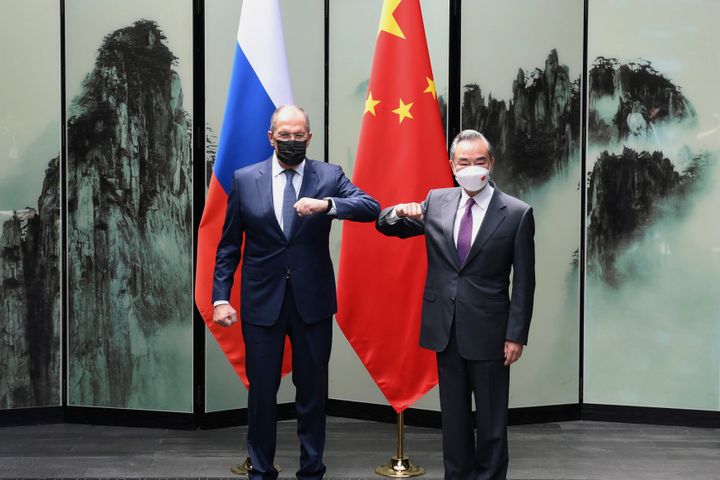Russian Foreign Minister Sergey Lavrov said Wednesday that the world is entering a historic stage in international relations, opening up an opportunity for Russia and China to lead a new “world order.”
“We, together with you and with our sympathizers, will move toward a multipolar, just, democratic world order,” Lavrov said at the opening of a meeting with Wang Yi, China’s foreign minister, in Beijing, according to AFP.
Advertisement
It was Lavrov’s first official visit to China since Russian President Vladimir Putin waged war on neighboring Ukraine in late February.
Wang echoed Lavrov’s remarks, saying China is prepared to work with Moscow to build on their relationship.
“China-Russia relations have withstood the new test of evolving international landscape, remained on the right course and shown resilient development momentum,” Wang said, according to a release published by China’s foreign ministry on the meeting. “Both sides are more determined to develop bilateral relations and more confident in advancing cooperation in various fields.”

Zhou Mu/Xinhua News Agency via Associated Press
Jeremy Fleming, the head of British intelligence agency GCHQ, offered a stark warning to China that a partnership with Russia — a country known for ignoring international rules — would not support its mission to lead the world.
Advertisement
“Russia understands that, long term, China will become increasingly strong militarily and economically,” Fleming said during a speech in Australia, according to the BBC. “Some of their interests conflict; Russia could be squeezed out of the equation.”
While the meeting was meant to focus on Afghanistan, China’s foreign ministry said Lavrov and Wang also discussed the ongoing tensions in Ukraine.
“We support Russia and Ukraine in overcoming the difficulties to continue with the peace talks, support the positive outcomes reached in the negotiations so far, support the deescalation of tensions on the ground and support the efforts made by Russia and other parties to prevent a large-scale humanitarian crisis,” Wang said.
China has so far refused to publicly condemn Russia for the war. Earlier this month, the White House warned China — a major U.S. competitor — that there would be consequences if it chose to help Russia evade Western sanctions.
Advertisement
Susan Shirk, the chair of the 21st Century China Center at the University of California, San Diego, and a former State Department official told The New York Times last month that China’s close ties to Moscow are worrisome for the United States.
“It’s certainly concerning, and it is not a positive development from the standpoint of U.S. national security or U.S. national interests,” Shirk said. “They have a kind of common perspective on the U.S. right now, and there is this affinity between the leaders.”
Chinese President Xi Jinping has previously referred to Putin as his “best friend.” The two also published a joint statement ahead of the opening ceremony of the 2022 Beijing Winter Olympics, saying the “friendship between the two states has no limits” and asserting “there are no ‘forbidden’ areas of cooperation.”
Fleming said Putin counts on China for military support and technology, and as a market for its lucrative oil and gas business, per the BBC.
On Thursday, Lavrov will visit India, which has continued to buy Russian oil — even in higher quantities during the war, taking advantage of discounts offered by Russia.
India has bought close to 13 million barrels of Russian oil since the beginning of the war, compared to almost 16 million barrels in 2021, according to Reuters.




